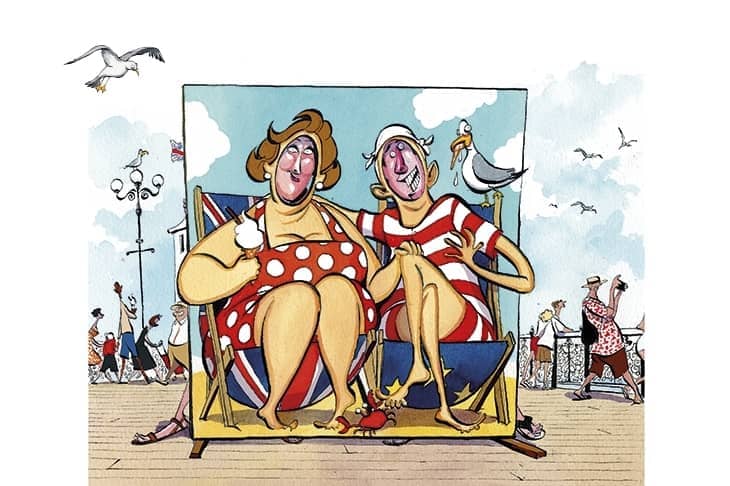In the 1980s, the great advertising writer John Webster described the following paradox. As he saw it, the dream of everyone in advertising was to work hard for many years, ultimately winning enough accounts and awards to retire to a French farmhouse where they could wake to the smell of fresh bread and black coffee, before driving a rusted 2CV to the local market. ‘A simpler alternative,’ Webster explained, ‘was simply to be born a French peasant, in which case you could cut out the middle bit altogether.’
Retirement plans are prone to what the behavioural economist Daniel Kahneman calls ‘affective forecasting’. We think we know what will make us happy. In reality, experiments show humans are very bad at predicting the effect that life changes will have on their levels of happiness, which return to a baseline remarkably fast. Consequently, when we plan to be happy, we may end up less happy than when we don’t plan at all. By defining your sources of happiness too narrowly in advance, you become overinvested in your predefined expectations, leaving you vulnerable to disappointment.
When we plan to be happy, we may end up less happy than when we don’t plan at all
This point was also made by Christian Busch, whom I was privileged to meet recently. Christian is (I kid you not) the Professor of Serendipity at New York University. It is a far more important area of study than it first sounds.
For instance, when we choose where to go on holiday, how many of our advance decisions are driven by misplaced assumptions about what we will enjoy? I am a big advocate of the unplanned driving holiday, since you end up serendipitously discovering wonderful places you never would have planned to visit beforehand. My wife and I discovered New Mexico almost by accident in this way; we’ve since been back several times. France is full of charming small towns that are largely missing from guidebooks.
The problem may be that when we sink too great a weight of expectation into a single holiday, it becomes like a mobile phone or car purchase – one of those infrequent, large expenses where we are reluctant to compromise or experiment. We duly overcommit to a one-shot attempt at perfection and overthink the whole thing. Moreover, if your idea of perfection is like everyone else’s, your holiday will end up crowded and expensive.
Might it be better to pick a vague destination almost at random and see what happens? I wouldn’t have thought this before meeting Christian, but looking back on my travels, most of the places I really love are places I never planned to visit at all. I much prefer Chicago to New York, for instance. But would I have booked a holiday there on my own dime? I doubt it. I was sent there on a business trip and fell in love with the place.
I once flew into New Orleans sitting in front of three Americans who were spending a weekend there. Americans have so little holiday entitlement, they are forced to make every minute count. Sure enough, these people spent the flight running through their plans for every minute of the trip. I remember thinking: ‘That’s not really a holiday – that’s an agenda.’
Interestingly a few employers, including Google, now offer employees a certain number of weeks of the year of ‘working from anywhere’. Might this free people to visit places they wouldn’t normally go? Or, better still, to turn short business trips into longer stays? I hope so. The stupidest form of travel is the one-day or overnight business trip, which has all the inconvenience of a holiday with none of the enrichment. And the great curse of international tourism is not the numbers, it is the ludicrous overconcentration of visitors in too few arbitrarily famous places. If you are curious enough, there is interest to be found everywhere.







Comments